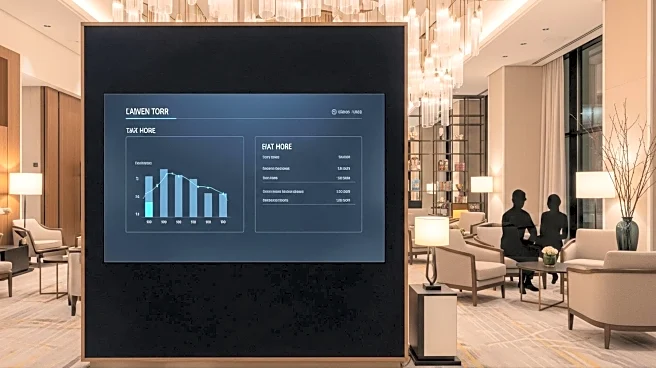What is the story about?
What's Happening?
The hospitality industry is undergoing a significant transformation by integrating real-time data activation to enhance guest experiences and improve business performance. Traditionally, hotels and resorts relied on dashboards and reports to track occupancy and campaign performance, which provided insights into past events. However, the current shift involves using AI and automation to detect guest behavior and respond instantly, turning data into actionable insights. This approach allows hospitality brands to personalize offers and experiences in real-time, such as triggering a late checkout offer when a guest books a room through an app. The focus is on connecting data sources and acting on signals promptly to stay ahead of guest expectations.
Why It's Important?
The adoption of real-time data activation in the hospitality industry is crucial as it addresses the growing demand for personalized guest experiences while optimizing business operations. By leveraging AI and automation, hotels can reduce acquisition costs, increase revenue, and improve ROI significantly. This shift not only enhances guest satisfaction but also strengthens brand loyalty and competitive advantage. The ability to act on live signals and personalize guest interactions in real-time is becoming a key differentiator in the industry, allowing brands to meet and exceed guest expectations efficiently.
What's Next?
As the hospitality industry continues to embrace real-time data activation, brands are expected to further integrate AI and automation into their operations. This will involve breaking down data silos and ensuring seamless collaboration between loyalty data, booking systems, and marketing platforms. The focus will be on identifying key touchpoints that drive revenue and guest satisfaction, and implementing automated workflows to enhance responsiveness. Over time, this approach will enable brands to refine their strategies, scale responsiveness, and deliver consistent results without overwhelming resources.
Beyond the Headlines
The shift towards real-time data activation in hospitality marketing highlights broader implications for the industry, including ethical considerations around data privacy and the need for transparent data management practices. As brands collect and utilize guest data to personalize experiences, they must ensure compliance with privacy regulations and maintain trust with their customers. Additionally, the integration of AI and automation raises questions about the future role of human interaction in hospitality, as technology increasingly influences guest experiences.
















